THIS CRAZY DAY IN 1972: Romy, Pepi, Royko, Hoover & Henry
Weekly Compilation May 1-7, 1972
To access all contents, click HERE.
Why do we run this separate item peeking into newspapers from 1972? Because 1972 is part of the ancient times when everybody read a paper. Everybody, everybody, everybody. Even kids. So Steve Bertolucci, the 10-year-old hero of the novel serialized at this Substack, read the paper too—sometimes just to have something to do. These are some of the stories he read. If you’d like, keep up with the 1972 papers every day on Twitter, @RoselandChi1972.
First off this week, many thanks to reader Bernie Cicirello, who gave me a research tip that is a marvelous gift that will keep on giving. Thanks Bernie!
May 1, 1971
Chicago Today: WTTW rings Romy’s phone
Bruce Vilanch’s TV Report
Bruce agrees to help in WTTW’s current fundraiser, a live on-air auction that runs several nights. He agrees “Out of a sense of duty, courage, dedication to culture and sheer ecstasy that anyone would ask me to appear on television without my clown costume”.
Bruce, if only you were still here instead of Hollywood, spicing up Channel 11’s fundraisers.
Bruce sees notes on set for who else is appearing—a who’s who of Chicago papers: “Maxine on Monday, Margot on Tuesday…Irv and Essee” on Wednesday.
Bruce is supposed to sell some strange things, but also something wonderful.
The strange: “A white box covered with crayola question marks. This box contains $150 worth of drugs, unfortunately not dangerous, from a suburban store. It is called the ‘Surprise Family Package.’”
The wonderful: “A telephone used by the late Harry Romanoff, former night city editor of this newspaper, in solving all sorts of great crimes and maybe even committing a few minor ones [Romy was known around here as the Yehudi Menuhin of the telephone].”

Bruce’s other merchandise does OK. “A major excitement, however, is Romanoff’s phone, which is turning out to be more priceless than the Romanov jewels. Three people are bidding wildly on the thing, which doesn’t even work anymore. Every time you take it off the hook our presses stop running and three dead police chiefs turn in their graves. Bidding inches up from $25 to $235 in two and three dollar bids.”
This really cracked me up because I’ll be writing plenty more about Harry Romanoff in a future Notes chapter focusing on Chicago’s American and Chicago Today. As I wrote in Chapter 3 Notes: Chicago Newspapers Circa 1972, Romanoff was such a character that a 1950 TV show did an episode on him, titled “Harry Romanoff, Chicago Reporter.”
Time Magazine wrote of Romy in 1969, just after he’d retired:
His reporters tell, for instance, of the time in 1966 when Richard Speck was accused of murdering eight nurses (missing only Corazon Amurao, a Filipina). Romy assumed an accent and began phoning around town as the Philippine consul. For a follow-up story, Romy decided to dig up details of the accused man's marriage and troubled early life. He got the phone number of Speck's mother, called and identified himself as Speck's attorney. Speck's sister began talking, and Romy got his story. He once observed: "They said I constantly posed for somebody else. It's not my fault if they misunderstand."
In the coming American/Today chapter, I will include this anecdote from journalist Jerry Ackerman. Jerry Ackerman would move to Boston and a distinguished 30-year career at the Boston Globe, including a shared Pulitzer Prize for Public Service. But first, he worked rewrite for a few years on the lobster (overnight) shift at Chicago’s American, learning from Harry Romanoff.
This is what Jerry told me about Harry Romanoff’s phone:
Harry Romanoff was notorious for walking around in his underwear on hot summer days, stripped down to his boxer shoots-- five-two, roly poly, well into his 70s. There were no women working there outside of the phone operator. He’d be doing his phone work and eating fried chicken from Mr. Chicken, a place on Ontario that delivered. Periodically he’d call the phone operator and say “My phone isn’t working all that well.” The phone company had technicians that made 24-hour calls. The phone guy would show up, and he’d know the problem: too much chicken grease had dripped into the phone. He’d clean up the mouthpiece and be on his way.
So somebody paid $1,586.25 in 2022 money for an old phone soaked in chicken grease, used by Harry Romanoff. That seems fair.
May 1, 1972
May 2, 1972
This is what Royko readers saw today when they turned to page 3:
Read this week’s Mike Royko 50 Years Ago Today (posting tomorrow) for more!
May 2, 1972
Mike’s Pulitzer ranked above J. Edgar Hoover, who made some big news today too, but his headline is below the masthead.
On April 27, Hoover testified before the House Appropriations subcommittee that the FBI would not hire any hippies or gays. “Personal appearance excludes hippies,” he said. “We permit no hippies in the bureau. I can guarantee that.”
“You don’t allow any gay activists in the FBI, do you?” asked Rep. John J. Rooney (D-N.Y.).
“We don’t allow any type of activists in the FBI, gay or otherwise,” answered Hoover.
But that was last week. This week, Hoover is dead.
May 2, 1972
Chicago Daily News: Loop crash injures 7, kills woman
A car jumped the curb on State Street Monday afternoon, hit eight pedestrians killing one, and crashed into a Marshall Field’s display window. The Daily News gives us a single picture of just the car, and a brief story short on details for a major event that killed somebody in the Loop. Luckily, there’s always Chicago Today—see below.
Mrs. Etta Martin, 54, of 1118 E. Hyde Park Blvd., died after her leg was severed by the car.

The driver is John Wimberly, 37, of 509 E. 79th. Per the News, Wimberly told police his gas pedal stuck, he lost control, and he was knocked unconscious when his head hit the car door.
May 2, 1972
Chicago Today: Loop driver alters fatal crash story
Thank goodness for Chicago Today. Now we’ll get those details. Also, this is one of those times when the papers are all over the place on details, and you can hardly keep score on where they diverge.
The Daily News said driver John Kimberly lives at 509 E. 79th, and that Kimberly claimed his gas pedal got stuck.
Per Chicago Today, Kimberly originally claimed “the rubber floor mat jammed the accelerator, causing him to become unnerved and to lose control.”
Now, Kimberly says “medicine prescribed by his doctor to combat the flue might have caused him to black out.” [Note: That’s Today’s spelling of “flu.” Normally, dead Tribune owner/publisher Col. McCormick demands words be shortened to simplify spelling. So either this is a typo, or the dead Colonel is not being consistent.]
“Kimberly, a computer operator for a Loop insurance firm, told authorities he had taken the medicine shortly before leaving for work yesterday. When he reached the intersection [of State and Washington], he said, he doesn’t remember what happened next.”
Also, Today says Kimberly lives at 7121 East End Av. That’s very different than 509 E. 79th. The East End address is a couple of blocks away from the Starbucks at Stony Island and 71st. The 79th St. address is of course eight blocks south, and then almost all the way west to King Drive. They’re both on the South Side and east of the Dan Ryan, FWIW.
One more thing on the addresses: That would be 7121 South East End Av. But back in the day, the papers often left off the directional when they judged that everybody would automatically know that a street or address could only be on one side of the city.
There’s no byline here, but like most Today stories, it’s well-written:
“An elderly woman clipped by the car fell to the gutter. Another pedestrian flew thru the air and landed on the sidewalk. A third, pinned to the shattered window, lay dying, a leg severed.” Sadly, they are describing Mrs. Etta Martin.
Kimberly is “charged with reckless homicide, driving on the sidewalk, damage to city property, and driving with an expired license.”
Mrs. Etta Martin, 53 (the Daily News said she was 54), was pronounced dead at the now defunct Henrotin Hospital. Her husband told Today that his wife had gone downtown to pick up a form for him from their doctor, then she’d gone shopping. Perhaps she’d taken the opportunity to nip into Marshall Field’s. “A witness said that as she was being placed in an ambulance she kept repeating: ‘My package, my package.’”
Chicago Today gives this story a full page—and rightly so—including five large pictures that unfortunately did not reproduce well on microfilm. The captions are classic Chicago Today though, including: “John Kimberly, 36, who drove the death car, stares from stretcher on way to hospital” and “Mercy knows no lines of age or color.”
May 2, 1972
Earth-shaking Cub news!
First, from the front page—just underneath the J. Edgar Hoover headline:
The story jumps to the sports pages, finishing the sentence above: “…when you can’t play and do your best…it’s time to get up and leave.”
Pepi gets the banner headline on the sports section, with no interference from J. Edgar Hoover or Mike Royko’s Pulitzer:
Pepi gets two articles. First, the continuation from the front page:
The Cubs “accepted Pepitone’s request that he be placed on the voluntary retired list”. Pepitone says it’s not because “the Cubs benched him two weeks ago” or “the illness, diagnosed as gastritis, that had kept him out of uniform in recent days.”
He says he’s going to stay in Chicago and run his bar, Joe Pepitone’s Thing at 12 E. Division.
Pepitone came to the Cubs only two years ago on a waiver, but he’s been a high-profile player. Hence the bar.
“‘Pepi’ was an instant favorite here, hitting 12 homers and driving in 44 runs in the last two months of (the 1970 season). Last year, he hit .307 despite a painful elbow injury. His free-wheeling style has enchanted many of the younger Cub fans.”
Now, the real drama in another long article by Armand Schneider:
“Joe Pepitone sat in the back of his saloon and poured out his emotions Monday night,” writes Schneider.
“They came out in the typical scatter-gun fashion of Pepitone. But these weren’t the words of Pepitone the laugh-maker. These were the words of a troubled man.
“‘All my life,’ said the Cub first baseman, ‘I’ve been a scapegoat. All my life until a couple of years ago. Then I started to be happy for the first time. Now I’m the scapegoat again. I don’t know what they want from me. First, they bench me. The whole club is going bad, five, six guys doing lousy. But who do they bench? Me. After only four games. It’s Joe who sits down. Then I get sick in Houston, vomit my guts out. All the guys saw me sick. I couldn’t play.
“Now, the press is making a lot out of it. I feel like Liz Taylor and Richard Burton.”

Pepi says he “had a lot of personal problems” and “the strike destroyed me. I lost my timing and desire.”
Some people might say baseball has been good for him, but it’s a “dog-eat-dog business,” he doesn’t have peace of mind, and “Maybe I wouldn’t have had those divorces doing something else.”
Bottomline, Pepitone says he wants to play, not sit on the bench. “I’ve never sat on a bench. It’s the most boring thing in the world to sit on a bench….I can’t stand not playing, so I don’t know what I’ll do if they don’t play me. Maybe I’ll quit.”
Pepi is such a big deal in the Chicago news universe this week, you’d hardly know Muhammed Ali just beat George Chuvalo in his quest to come back after the monumental bout he lost to George Frazier in 1971.
May 2, 1972: The Mighty IC
Chicago Tribune
by Casey Bukro, Environment Editor
The Illinois Central is currently selling off the air rights to two vast areas of its holdings in key lakefront downtown locations—the site of old Fort Dearborn, east of Michigan Avenue between Randolph and the Chicago River…
…and east of Michigan Avenue at Roosevelt Road, the southern edge of Grant Park, extending south at least as far as 22nd Street.
Yesterday, IC vice president of real estate Harold S. Jensen testified at an Illinois Senate agriculture and conservation subcommittee hearing on state Rep. Robert Mann’s proposed Lake Michigan Bill of Rights, which passed the Illinois House last year.
The IC does not like it.
“The Mann bill proposes controversial land-use reforms along a 1 1/2 mile zone bordering the Illinois lakeshore that emphasizes public access and use of shoreline areas,” writes Bukro.
IC VP Jensen told state senators the Mann bill “will stifle development of 85 square miles of the Illinois lakefront.”
Jensen claims lakefront property will lie vacant until comprehensive planning is finished.
“As taxpayers in the state of Illinois we do not think the state should expose itself to the potential liability of hundreds of millions of dollars for the damages to property owners who may be unable to develop their property during or after the preparation of the comprehensive plans called for in the bill,” Jensen testified.
“The most violent outburst during the hearing held in the State of Illinois Building came from Sen. John Knupple (D., Petersburg), in an exchange with a member of Citizens Action Program, who walked out complaining that Knuppel was criticizing the bill as chairman (of the subcomittee).
“Paul Booth, C.A.P. co-chairman, testified that studies show high rise developments do not build tax bases, but are a drain on them because of demands for increased services.”
Booth called for the committee to send the bill to the Illinois Senate floor. U.S. Rep. Abner Mikva also testified in favor of the Lake Michigan Bill of Rights.
May 2, 1972
Chicago Daily Defender
The caption reads: “In a dramatic request, U.S. Rep. Ralph H. Metcalfe (D-1st) announces a telegram sent to Mayor Richard J. Daley asking him to attend a meeting today with black leaders to discuss police-black community relationships. The news conference was held in the Daily Defender offices, 2400 S. Michigan ave. Many black leaders were present, representing religious organizations, SCLC, NAACP, Operation PUSH, and the League of Black Women—to name a few. Seated next to Metcalfe are (from left) the Rev. C.T. Vivian, of SCLC and State Rep. Harold Washington (26).”
May 2, 1972
Chicago Daily News: Dick Cavett Show ad
These Dick Cavett Show ads run a lot actually, and not just in the Daily News. They’re small ads, but frequent, sometimes every single week day, advertising the specific guests Dick will interview that evening. This one struck me because—Dick Cavett and a bunch of gangbangers?
Wish you had a basic idea of how Chicago started, but not up for cracking a history book? I get it. Here’s a fun way to learn the basics—Part 3 of our Wrigley Building Notes Chapter: When Chicago Wasn’t Chicago. It cites several terrific books for further reading, when you’re ready.
May 2, 1972
Chicago Daily News: Father Dubi: A man of action
by Lois Wille
On April 2, the Daily News’ Jay McMullen reported on Mayor Daley’s meeting with leaders of Citizens Action Program (CAP) including Father Leonard Dubi, who accused the mayor of trying to “ramrod a bond program down the taxpayers’ throats without a referendum.”
The City Council was about to approve an ordinance allowing the city to issue up to $360 million in general obligation bonds, just about the legal limit, without a voter referendum—because the spanking new Illinois Constitution now allows it.
Mayor Daley was unruffled. “Unfortunately, many times in government you and others do not know what’s going on,” he told Father Dubi, and then he got Father Dubi to admit he hadn’t read the ordinance.
“‘I’m shocked at you,’ Daley said softly. ‘What kind of priest are you to tell me you are now talking about something you have never read?’” (The Daily News clearly cleaned up Mayor Daley’s syntax. That’s still a thing outside Royko columns. Mayor Daley did not sound like the Queen of England that day.)
Last week, U.S. Rep. Roman Pucinski threatened to punch Father Dubi in the nose during a raucous meeting outside Pucinski’s Milwaukee Avenue office with a coalition of groups opposing Mayor Daley’s pet project, the Crosstown Expressway. CAP is spearheading Crosstown opposition—the new road would plow down miles of Chicago homes on the South and West Sides.
Father Dubi asked Pucinski to reveal his and his family’s finances as Pucinski runs for U.S. Senator, prompting Pucinski’s fighting words:
“Say, if you weren’t a priest, I’d punch you right in the nose!”
“Go ahead! Go ahead!” yelled Father Dubi, but Pucinski backed down and retreated into his office.
So Father Dubi has been getting around, and now we’re treated to a profile of him by none other than Lois Wille, one of the most distinguished alumni of the Chicago Daily News.
Wille was one of the first women at the News to work her way onto a regular news beat. By the 1960s she was producing investigative series for the paper on a range of issues—such as the lack of contraceptive information and services for low-income women, which won her a Pulitzer Prize in 1963. That series led Illinois to pay for contraception for women on welfare.
Wille went on to become the Sun-Times editorial page editor after the Daily News folded, moving on to the Tribune (with her friend Mike Royko) in 1984 after Rupert Murdoch bought the paper. She rose to editorial page editor at the Tribune too, and won a second Pulitzer Prize for editorial writing in 1989.
Lois Wille wrote two indispensable books about Chicago: “Forever Open, Clear, and Free: The Struggle for Chicago’s Lakefront” and “At Home in the Loop: How Clout and Community Built Chicago’s Dearborn Park.”
Mike Royko thought the world of Lois Wille, calling her “the best analytical mind I’ve ever seen.”
Unfortunately, we can’t just print Lois Wille’s entire profile of Father Dubi. Some highlights:
“In the morning he’s comforting the sick of his parish, and in the afternoon he’s out shouting at city officials, or steel company executives, or Sanitary District trustees—or Mayor Richard J. Daley,” Wille writes.
…. “If a priest doesn’t help his people channel their power….well, you can pray and pray and pray, but unless you also act you won’t accomplish much,” Father Dubi told Wille as they had coffee in the rectory of his Southwest Side parish, St. Daniel the Prophet Church—which is still in business, something you can’t say about a lot of Chicago parishes. At that time, the parish’s address was given as 5330 S. Nashville, but the church faces 54th Street between Nashville and Natoma. This is just about as far west as you can get and still be in the city—it’s west of Midway, in Garfield Ridge. It’s a young church that sprang up with the community that sprouted there just after World War II.
“He likes to say that he patterns his life after the biblical admonition to be ‘wise as a serpent, gentle as a dove.
“But he didn’t look so gentle when he accused Daley of wanting the bonding power so he could build a lakefront stadium for the Chicago Bears, or when he invaded a Commonwealth Edison Co. stockholders meeting and demanded antipollution equipment, or when he ripped off his Roman collar—apparently ready for a fistfight—after an angry U.S. Rep. Roman C. Pucinski (D-Ill) balked at signing a statement opposing the Crosstown Expressway.” Jay McMullen left out that fun detail in the original story.
Father Dubi grew up on the Southeast side, “son of a steelworker and a practical nurse…He breathed the filthy air spewed out by the steel mills….Later, he saw his old neighborhood change quickly from white to black, ‘completely deserted,’ he says, by city agencies at the time of crisis.
“‘That’s why there is so much concern today in white areas,’ he says. ‘When racial change begins, the city should pour in additional resources—insure that schools and city services and police protection are top quality. Instead, the city lets everything fall apart.’”
Father Dubi went to Bowen High School, working as an Andy Frain all the way through his seminary years. He even showed Mayor Daley to his seat once in Comiskey Park. Father Dubi got all fired up over social issues during those years, as he also worked for Catholic Charities.
When Father Dubi began his assignment at St. Daniel’s in 1969, he got to know the parishioners in the blue collar, mostly white neighborhood. They were worried about bad schools, air pollution, and high taxes.
“‘I realized their problems and the problems of the black poor were not that different,’ he says. ‘Both were powerless. My people had superficial affluence—a house, a car, color TV. But that only covered up their powerlessness, that old feeling that ‘You can’t fight City Hall.’”
Father Dubi organized the forerunner of Citizens Action Program, which was Campaign Against Pollution—after taking a course with Chicago’s Saul Alinsky. Now, CAP is fighting a lot of battles, including the Crosstown Expressway.
May 3, 1972
Chicago Daily News: Blacks shun Daley’s police meeting
‘He must come to us’ — Metcalfe
by Jay McMullen and Lu Palmer
Let’s first note the interesting reporting pair on this article—Jay McMullen, future husband of future Mayor Jane Byrne—
—and Lu Palmer, one of the first Black reporters at the Daily News. Palmer writes a weekly op-ed column for the Daily News’ weekend edition. He’s sharply critical of Mayor Daley (see this week’s column in particular farther down, under May 6-7) and always a strong civil rights voice who leans to the Black Power end of the political spectrum.
Spoiler alert, Palmer will quit the Daily News this year in an editing dispute, segueing more into activism and radio. Palmer and his wife, Jorja English Palmer, will be prime movers behind Harold Washington’s successful 1983 campaign to become Chicago’s first Black mayor. Lu Palmer is credited with inventing the Washington campaign slogan “We shall see in ’83.” Later, Palmer will found groups like Chicago Black United Communities.
Now to the article:
“Dozens of black leaders said they would boycott a City Hall meeting called by Mayor Richard J. Daley for Wednesday to discuss how to improve police-community relations in black areas.”
The meeting is scheduled for tomorrow in City Council chambers, with addresses from Daley and Police Supt. James Conlisk, to “perhaps unveil plans designed to take the steam out of recent brutality complaints by blacks.”
“The boycott was being led by U.S. Rep. Ralph H. Metcalfe (D-Ill), who was considered a strong Daley supporter until the recent uproar involving charges of police brutality against blacks.
“Metcalfe was left off Daley’s invitation list, but received an invitation late Monday when an additional 100 names were added to the original list of more than 200 names.”
Metcalfe and other Black leaders decided to boycott Daley since he didn’t accept their invitation to a police brutality discussion at Liberty Baptist Church, 4849 S. King Drive, on Tuesday (yesterday). In fact, Daley never answered the invitation, which was sent in a telegram.
Yes—there were still telegrams in 1972, though they were quite rare, and used as in this instance to make a statement. To adults in 1972 , telegrams symbolize an important message. Even in the heyday of telegrams, most people didn’t pay to send telegrams just any old time. While people might occasionally splurge to send a telegram for a fun occasion, telegrams were used for such serious purposes as informing a family when a soldier had died in battle. Remember “It’s A Wonderful Life” when Mr. Gower gets a telegram telling him his son Robert has “died of influenza”? Anyone of modest means would be somewhat worried to receive a telegram, back in the day.
“We will not go to him [Mayor Daley] until he comes to us in the black community where the problem is,” Metcalfe told reporters.
“Metcalfe then urged all blacks who received invitations to Daley’s City Hall meeting Wednesday to stay away ‘to further strengthen our solidarity.’”
"….Conlisk was asked if relations between police and blacks had deteriorated as Metcalfe and a number of other black leaders have charged. The superintendent replied:
“‘Obviously I do not think they are as bad as he (Metcalfe) says. I think our relationships with the public are healthy. Allegations are made from time to time. These are investigated and action is taken when the investigation is completed. We have many programs, and we’re continuing to work on these programs.”
May 3, 1972
Metcalfe aware he’s challenging Daley
An analysis
by Lu Palmer
“U.S. Rep. Ralph H. Metcalfe (D-Ill) said Tuesday he has not made a break with Mayor Daley.
“But he has thrown a challenge at the city’s chief Democrat which could result in the creation of a black anti-administration movement unparalleled in this city’s history.
“A broad based following has rallied behind Metcalfe’s leadership in a crusade against police brutality of black citizens. And it is the kind of support that is aware of both immediate and future implications.”
If Metcalfe’s group can’t force “drastic action to end police harassment of blacks” the group says it will “set up techniques of survival for ourselves.”
“Metcalfe would seem to be one of the least likely candidates for the leadership role in such a maneuver. He is a longtime Daley confidante, ex-alderman of the 3d Ward, former president pro-tem of the City Council and present 3d Ward Democratic Committeeman.
“But Metcalfe is also now a U.S. congressman and he is running unopposed in the November election. And more importantly, it is known that Metcalfe is nagged by a desire, perhaps a need, to ‘liberate’ himself from the Daley yoke and to become an unencumbered leader of black people.”
That means being “empowered by black people” writes Palmer. In addition, Metcalfe’s backers aren’t “the usual political types.” They include the heads of the Chicago chapters of the NAACP and the Urban League.
People “who admit they were skeptical of Metcalfe’s motives were convinced of his sincerity when Metcalfe told the press:
“We will not go to Daley until Daley comes to us in the black community where the problem is. We’ve got a tiger by the tail and we will not turn it loose.”
If you’re a regular THIS CRAZY DAY reader, you’ll probably want to follow Mike Royko 50 Years Ago Today too.
May 3, 1972
Chicago Today: Civilian to sift brutality charges
by Ray McCarthy
Ray McCarthy covers Mayor Daley’s massive meeting in the City Council chambers on police brutality and relations with Chicago’s Black community—which was boycotted “by many of the city’s black leaders.”
At the conference, Police Supt. James Conlisk announced a six-point plan of changes. At the top, police brutality charges will be investigated by civilians— “long opposed by the city administration and the police department.”
“The review procedure announced today stops short of a full-fledged civilian review board but is seen as a major change in police department policy.” This apparently single review individual would come from the city’s Commission on Human Relations, investigate all charges, and “report directly to the superintendent of police and the chairman of the Human Relations Commission, Peter F. Fitzpatrick.”
But the real highlight of the meeting is Mayor Daley’s “fiery speech”:
“The police do not create the initial incident. On the contrary, the police are called because of a breach of the peace,” Mayor Daley declared. “Moreover, the mayor said, he is dismayed by ‘the growing tolerance of violence by our citizens’”.
“We often hear of cases where citizens stand by and see another person beaten and refuse to help. They refuse to be witnesses in cases of violent crimes. And our police are confronted with snipers firing at squad cars.
“This is a two-way street. The policeman is on the front line, and he must deal with the violent criminal, the thief, and the drug addict.”
And then Mayor Daley went off-book to defend the police during the 1966-67 street riots and the 1968 Democratic convention. Oh yes, he went there.
“The way the police were depicted during the convention disorders, he said, was ‘the greatest perversion of propaganda ever perpetrated against any city.’
“There is no justification, the mayor stressed, for calling our police ‘pigs, brutes, s.o.b.s, or other vile appellations.’”
This sidebar story will help explain “All in the Family” to Younger Readers. Mayor Daley at some point in the meeting “urged that a person should get the facts before criticizing anyone, particularly on an ethnic basis,” writes McCarthy.
“What is it about a Jew, a black, Spanish, a Turkey, that you ask—”
Mayor Daley was stopped by laughter, because “Turkey” was well known at the time as a slang term for “Irish.” Not sure how “Turkey” be considered a slur, or just slang. If you google it, and there are any number of unconvincing possible explanations for the origin of the term.
Mayor Daley started to sit down, but before the next speaker could get started, he jumped back up to add: “I want to include the Italians too. There’s a lot of criticism against them too.”
May 3, 1972
Chicago Daily Defender: Plan Sears boycott
by Lucille Younger
Back on April 12, Sears ran this ad in the Defender, specifically seeking Black applicants for its management training program:
But now Sears may be facing a Black boycott, scheduled to begin May 4. According to Lucille Younger’s article, on April 17, “18 black executives from DeSoto Chemical Company” were fired “after staging an epidemic of ‘Black Flu’ in which they did not report to work for several days. The employees were protesting alleged discriminatory practices at DeSoto and the failure of plant officials to allow for fair wages and top positions for minority workers.”
Sears owns 32% of DeSoto, writes Younger. “Black consumers are being asked to stop buying commodities at Sears because of the company’s failure to oversee” the dispute. The boycott is led by Malcom X College President Dr. Charles G. Hurst.
Today, in the same issue, Sears runs these two full page ads, and on Saturday, Sears will run a full page ad for auto parts.
May 4, 1972
Chicago Daily News
Abortion clinic raided, seven women seized
by Phil Slake
In January 1973, so less than a year after this article, the Supreme Court issued its Roe v. Wade ruling, finding that the 14th Amendment right to privacy protected women’s right to an abortion.
Exactly 50 years after this article appeared, here are the “enewspaper” front pages from the Chicago Tribune and Sun-Times websites:
“Seven Chicago women were arrested Wednesday on charges of operating an illegal low-cost abortion clinic out of two South Side apartments.
“One of the women, Mrs. J* P*, 29, of 2216 N. G*, was dismissed as a teacher from Niles East High School in March, 1970, because of her innovative teaching methods.”
Later in the article: “Mrs. P* was released after being held briefly in the women’s lockup because she is nursing a baby.”
“Chicago police learned of the clinic from a woman whose sister reportedly was scheduled to have an abortion there Wednesday, and did not want her to undergo the operation.”
Wonder how those family holidays have gone the last 50 years.
“Homicide investigators said the clinic charged only $100 ($675 in 2022 money) for the operation and handled as many as 15 patients per day. None of the women who performed the operations was a licensed physicians, police said.
“Investigator Theodore O’Connor of the Burnside Homicide unit said a fully equipped operating room had been set up in an 11th-floor apartment at 7251 S. Shore Dr.
…. “Six women who were performing the abortions were arrested there and a seventh was arrested in an apartment at 5532 S. Everett, where patients were interviewed and screened, police said.”
We’ll skip the names, ages and full addresses of the six other women arrested, though the Daily News did not, per 1972 reporting standards.
“Police said the women apparently had been trained by a physician. Investigators said they were trying to determine if the clinic is part of a nationwide network.”
Also, “each of the women (patients) had been interviewed twice before the operation—once in a public place, and once in the Everett av. apartment….The patients learned about the clinic by word of mouth”.
“Each of the seven women was charged with three counts of performing abortions and three counts of conspiracy to perform abortions.”
As many readers will already understand, this was a raid on the Jane abortion movement. There’s a lot of material on the Janes available online now. Here’s a New York Times story on two films at Sundance this past January on the Jane movement— “The Janes,” a documentary; and “Call Jane,” a fictionalized dramatization starring Elizabeth Banks.
One of the co-directors of the documentary has the same last name as the arrested teacher named at the top of this article.
May 4, 1972
Chicago Daily News
Cuckoo for Kissinger: The week in Henry headlines
Last week on April 25, we learned that Henry Kissinger, still just an advisor to President Richard Nixon and not Secretary of State, had just gotten back from a secret trip to Russia to pave the way for a presidential trip there. The press is cuckoo for Kissinger. This week, the AP provided its subscribers with a four-part panting series on Kissinger, and the Daily News printed it all, with luscious headlines. Today was the final installment.
A mixed platter of Kissinger hors d’oeuvres:
May 1
“On this particular day in Washington, there was a new crisis in the war in Vietnam, and Kissinger was in the middle of attempts to resolve it….The President would make the decisions, but the fodder would come from Henry Albert Kissinger, sometimes described as the second most powerful person in the world.”
May 2
“As Richard M. Nixon’s premier foreign affairs advisor, he sometimes is called the second most powerful man in the world. Kissinger was closest to Mr. Nixon on the recent trip to China and will be next to him on the presidential visit to Moscow later this month.”
May 3
“Getting drafted into the Army may have been the luckiest thing that ever happened to Henry Kissinger.
“There he met a monocled lawyer and scholar who informed Kissinger, ‘You are unbelievably gifted.’”
“Henry Kissinger, as a student at Harvard, left a lasting legacy for later generations of thesis writers.”
May 4, 1972
Chicago Daily Defender: GOOD MORNING, SPORTS!
A.S. Doc Young column
Prayer for Richie
“The Richie Allen news out of Chicago sounded good, very good,” writes Doc Young, who has written before about his hopes for Dick Allen. Young has written that he considers himself a friend of Allen’s.
Doc Young heard all the good Dick Allen news, and “in a rare moment,” decided to include Dick Allen in his prayers:
“Dear God, if you will permit such a mundane request, I want to ask a favor for Richie Allen, my favorite baseball player.
“Richie says he feels wanted. He says he wants to play out his career with the White Sox.
“Dear God, let it be. Let it be.
“Let it be, Dear God, because Richie Allen needs a baseball home….He’s been booted around and kicked around and traveled around much too often and much too long.
“Let it be, Dear God, because Richie Allen down deep is a really nice man. He is a good guy who loves mother and family and baseball. He isn’t raucous. He is rarely, if ever, ungentlemanly.”
…. “I know, Dear God, that Richie Allen isn’t an angel. You know it, too, of course. But who on earth is an angel? Not many, as you know, Dear God.
“Richie does have a tendency to anticipate trouble….Give Richie the strength to quit the hunt (for trouble). Richie sometimes lets race become too big a thing with him. Dear God, teach him that this is a multi-colored world and that good and bad come in all colors. Teach him that it’s a waste of time to dwell on past evils and hurts.
“Dear God, if it isn’t too much trouble, keep an eye on Richie Allen this year….You don’t have to worry about his hitting, Dear God. You know he can handle that all by himself.”
May 4, 1972
Have you read Chapter 1: A Good Life Ruined? Then don’t miss Steve’s crazy day at work in 2003 in Chapter 2: The Conference Room Windows!
May 5, 1972
Chicago Daily News: Polk Brothers full-page ad for Mother’s Day
Just what you wanted, right ladies?
May 5, 1972
Chicago Daily News: Daily News is up, Today is down
Hijacker flies off with $303,000!
by Robert Gruenberg
Where should we start? Yes, definitely. The hijacking. We’ll just note that the Daily News and Chicago Today are at each others’ throats fighting for readers in the shrinking afternoon newspaper market.
“A gunman saying he had a briefcase full of explosives hijacked an Eastern Air Lines jet Friday, forced it to land at Dulles International Airport, then left aboard the plane after getting a $303,000 ransom.” The flight was bound for Miami from Allentown, PA.
The passengers were all let out at Dulles. But a half hour later, the pilot radioed they were coming back because there was something wrong with the money. Two F-1-6 jets were sent after the plane, according to the Pentagon.
“The hijacker reportedly left with as many as 12 parachutes, two bush knives, two crash helmets, two jumpsuits and two cartons of Benson & Hedges cigarets.”
Passengers told reporters that the hijacker took over about ten minutes into the flight, holding a stewardess at gunpoint.
The end.
Hijacking stories often stop abruptly in the middle, since skyjackers don’t necessarily begin and finish their crimes in time for newspaper editions.
May 5, 1972
Chicago Daily News: Fire Conlisk, NAACP asks; hits reforms
by Lu Palmer
Andrew C. Barrett, executive director of the Chicago NAACP, called for police Supt. James Conlisk to step down. “I question whether a man whose department has been investigated at least once a year since he took over should remain in office,” he said.
Barrett “also rejected Conlisk’s proposals for police reform,” saying that Conlisk lied “when he said he would respond to the demands of Congressman (Ralph H.) Metcalfe and then ignoring them.”
“Barrett demanded that Mayor Richard J. Daley accept the Metcalfe demands and ‘rescind his shoot-to-kill order, which in my mind is still in force.’”
May 5, 1972
Chicago Today: $1-million suit by widow of black dentist
“The widow of the black 71-year-old South Side dentist who died from the effects of a stroke after being detained by police has filed a $1-million damage suit in Federal District Court,” reports Today.
Dr. Daniel Claiborne’s case is a prominent one in the current movement by Black leaders, led by U.S. Rep. Ralph Metcalfe, to force Mayor Daley and Police Supt. James Conlisk to address police brutality against Black Chicagoans.
“Mrs. Daniel Claiborne of 9329 S. Forest Av., under the Federal Civil Rights Act, charges that police deprived her husband of his rights when they refused him medical attention.
“Dr. Claiborne died last Friday in Provident Hospital. He was admitted to the hospital April 16, after being held for more than five hours by police who believed he was intoxicated.”
May 5, 1972
Chicago Daily News: Kenwood vet slaying case up to grand jury
By Edmund J. Rooney
Chicago Daily Defender: Cop to grand jury
By Robert McClory
Chicago Tribune: Delay Seen in Action on Vet Slaying
The shooting of former Marine Cornelius Fitzpatrick at Kenwood High School on Feb. 15, another prominent case in the current Black movement for police reform, has been covered by all the papers every day this week.
Many of the facts of the case are disputed. Fitzpatrick was at Kenwood High School that day with his friend John Saunders when they encountered Bernard Martin, an off-duty cop working as a security guard. Accounts agree that Martin asked Fitzpatrick and Saunders to leave. After that, all we know for sure is that a scuffle ensued, Martin claimed Fitzpatrick drew a gun on him, and Martin shot and killed Fitzpatrick.
Cook County Coroner Andrew Toman assigned a special deputy coroner to investigate the shooting in front of a coroner’s jury, but his selection of Martin Gerber was explosively controversial. As Robert McClory wrote in the Defender last week, Gerber is “the same special deputy coroner…who headed the jury which exonerated the police in the 1969 killings of Fred Hampton and Mark Clark.”
So this has been an exceptionally contentious hearing before the coroner’s jury. At one point, Kermit Coleman, representing the Fitzpatrick family, accused Bernard Martin of signaling to witnesses to coordinate testimony. Gerber made Martin change seats to get him out of view of the witnesses.
Martin testified he hadn’t “worked out” in his mind whether he shot Fitzpatrick by accident, or as part of his “instinct to survive” when he allegedly saw Fitzpatrick pulling a gun.
Martin admits he picked up the gun and pocketed it after the shooting, claiming he just didn’t think about fingerprints. Another off-duty cop and security guard testified that he told Martin to pocket the gun because he was afraid the crime scene would be overrun by angry students.
Kermit Coleman insisted that Martin’s handling of the gun broke the chain of evidence, and that Martin planted the gun. The gun ended up with “no suitable fingerprints” according to the police technician who testified.
Witnesses disagree with each other on key points like whether Fitzpatrick’s body was dragged under a nearby stairwell after the shooting, or moved after the ambulance arrived. Martin and other security guards say Fitzpatrick’s body wasn’t moved earlier, while some students and teachers say it was.
Students and teachers testified they didn’t see the gun in Fitzpatrick’s hand, but some of those witnesses weren’t in a position to see anything. One student witness wasn’t even in the building, while another insisted that it was the another security guard, not Bernard Martin, who shot Fitzpatrick.
Meanwhile, another off-duty cop and an off-duty firemen, both working as security guards, testified that they saw Fitzpatrick draw the gun from his hip pocket. But they’re the ones who attorney Coleman said were receiving signals in the witness box from Bernard Martin.
Robert McClory’s May 2 story in the Defender detailed that the gun allegedly used by Fitzpatrick was reported stolen from the Harold’s Chicken Shack at 7310 S. Halsted in July 1970, and attorney Coleman produced a record showing the same gun was stolen from someone else in November 1970.
The coroner’s pathologist testified that Fitzpatrick had a small amount of alcohol and a small amount of a barbiturate in his blood, and died from a bullet wound in his heart.
Despite all these charges and contradictions, the coroner’s jury surprised everyone by returning a verdict of “involuntary manslaughter” against Bernard Martin after just 90 minutes of deliberations.
“Charles Fitzpatrick Jr., the slain veteran’s older brother, express satisfaction with the verdict.
“‘I came here for justice, not vengeance,’ said Fitzpatrick, 23, who works as a sales representative. ‘I see this as an effort to stem the brutality by police in the black community. My brother never had been arrested. I want to thank the jury on behalf of myself and my parents.’”
Now, the case will go before a Cook County grand jury. The involuntary manslaughter charge carries a potential maximum penalty of 1 to 10 years in prison.
May 6-7, 1972
The story continues: That hijacker who demanded $303,000—and there’s no explanation for the bizarre number—“parachuted from an Eastern Air Lines jetliner over a remote Mexican jungle Saturday,” presumably with the money.
It’s called a “marathon hijacking” now since it started on Friday. After we left the hijacker in yesterday’s paper, he switched planes in New Orleans and went on to Mexico before jumping.
And, “in a second, almost simultaneous hijacking, a Western Airlines flight with 70 persons aboard was commandeered by a young man with a gun near Salt Lake City and flown to Cuba.”
Both hijacked planes were followed by U.S. Air Force jets, for all the good that did.
The FAA’s plea to everybody to keep hijacking details secret to prevent more hijackings doesn’t seem to be working.
May 6-7, 1972
Chicago Daily News: Chicken Unlimited full page ad
The odd thing is that although Kentucky Fried Chicken was well established in Chicago by 1972, I’m not seeing KFC ads in the papers. Chicken Unlimited, I assume, will be run out of business by Colonel Sanders—because they all disappeared, I would say by the ‘80s.
Chicago Daily Defender: Chicken Unlimited full page ad
The Roseland Chicken Unlimited was at 11055 S. Michigan Avenue, really the corner of 111th and Michigan—it’s listed in these ads under the “CHICAGO-South” restaurants. Pete Kastanes of Vanished Chicagoland talks about eating at Chicken Unlimited on his Facebook page here.
And here’s Pete and his brothers in front of the Roseland Chicken Unlimited, circa 1972:
May 6-7, 1972
Chicago Daily News: ‘New’ Metcalfe spitting fire
by Lu Palmer
“Five years ago Mayor Richard J. Daley hailed Ralph H. Metcalfe as ‘one of the greatest aldermen to enter the City Council.’
“A year earlier, Metcalfe lauded Daley for ‘statesmanship’ when the mayor won an injunction limiting marches for open occupancy.
“It was then, in his role as alderman, that Metcalfe commented that activists wanted to ‘see Chicago destroyed.’ He said he feared that militants would ‘cause Negroes to lose their gains.’”
… “But the mutual admiration between the Daley administration and Metcalfe, now a congressman, apparently has ended. The former Olympic track star, former president pro team of the City Council and closest black confidante of Mayor Daley is spitting fire. He has declared that ‘we are out to change the system.’”
Metcalfe is leading the drive to stop “what he charges is police brutality against blacks in Chicago,” and he’s also refusing to back indicted incumbent Cook County State’s Attorney Edward Hanrahan in his re-election campaign, though he won the Democratic nomination.
Metcalfe, writes Palmer, “is talking about Daley almost as if the mayor were his mortal enemy.”
Metcalfe held a press conference at First Church of Deliverance, 4315 S. Wabash, and charged that Daley’s City Hall is trying to intimidate him by sending inspectors “in and out” of his ward office, and stationing “intelligence men” outside his door to see “who is coming in and out.”
Metcalfe says he doesn’t recognize Mayor Daley’s City Hall meeting on police brutality, and repeated that he expects his own demands to be met by May 31.
“Metcalfe, 62, ran up the political ladder like he used to sprint to victory on the cinder paths in his youth. He became 3d Ward Democratic committeeman in 1952 and alderman in 1955, a post he held until 1970 when he was elected to Congress.
“Metcalfe’s apartment at 4530 S. Michigan is decorated liberally with trophies, medals and a shirt bearing the fading red, white and blue colors of the U.S. Olympic team….But close friends are convinced that the citation he has wanted most has eluded him. Metcalfe has never been known as his own man—as a fighter for black people.
“And, as he moves into his last political years, it is the belief of some that he is driven by an inner need to compete in the ‘freedom Olympics.’”
May 6-7, 1972
Chicago Daily News: Police slump since Wilson?
by Edmund J. Rooney
Former Police Supt. O.W. Wilson was brought in from outside by Mayor Daley to clean up the department in 1960 after the Summerdale police scandal broke.
“By the time he retired in 1967, he had transformed it into what was probably the nation’s finest big city force,” writes Rooney. “What has happened to the Police Department since Wilson retired? And why has it happened?”
Besides the current campaign by Chicago’s Black leaders targeting police brutality, the police department is undergoing several federal investigations that have already brought 12 indictments of current policemen by grand juries. And there will be more.
An interesting theory comes from ACLU attorney Dave Goldberger, who “said that the 1968 disturbances that occurred after the assassination of Dr. Martin Luther King Jr. and during the Democratic National Convention ‘solidified public opinion behind the police department,’ adding: ‘The department’s reaction was to function pretty much as it wanted. They didn’t have to worry about serious rebuke.’”
May 6-7, 1972
Chicago Daily News: Letter to the editor
On April 24, Joy Savides of Park Forest wrote the Daily News to warn that “the advocates of the women’s equal rights amendment” might not really know “what they are getting us into”.
Women might have to register for the draft, and “females who meet the same physical size and strength qualifications for combat that males meet must be assigned to combat on an equal basis with males. Are we ready for this? Never!” Joy Savides wrote. Savides hoped the American public would “end our blind approval of anything labeled ‘equal rights’” and concluded: “Meanwhile, parents of young girls might well complain to their state legislatures before they find their daughters in Southeast Asia.”
For good measure, by the way, Joy Savides also sent her letter to Chicago Today, which printed it yesterday.
Chicago’s Laurie Lemel isn’t having it.
May 6-7, 1972
Chicago Daily News: Lu Palmer column
Daley tosses a package of insults
“Chicago’s Mayor Richard J. Daley insulted the city’s blacks three times in just a couple of days,” Lu Palmers opens his weekly column.
“Though he has made a habit out of insulting blacks and other minorities during his long reign, he normally stretches the the insults over a longer period of time.
Insult #1, Tuesday: Daley ignored a telegram invitation to meet with U.S. Rep. Ralph H. Metcalfe and other Black leaders “to discuss increased police brutality against blacks in Chicago.” In so doing, “he cut down a black Democratic figure who had, over the years, been a Daley loyalist.”
Insult #2, Wednesday: Daley calls his own meeting to discuss police-community relations. “Despite the boycott…by virtually all of Chicago’s black leadership, it was apparent from the beginning that this was to be a white folk’s meeting.” Daley and Police Supt. James Conlisk “gave ringing defenses of the police department” that took up the first hour. Nobody really addressed police brutality.
Insult #3: "This one “was to the intelligence of black people” because “Conlisk’s proposed ‘reforms,’ which undoubtedly bore the approval of Daley, do not even begin to suggest solutions to the very real problem of police physically, verbally, and psychologically brutalizing black people.” Palmer notes the biggest touted “reform” is civilian review of alleged police brutality cases, but by “the mayor’s own Commission on Human Relations,” which is “the mayor’s own instrument”.
“Daley spoke out loud and clear when he issued his famous ‘shoot to kill’ order to the police. Those words still echo in police ears as a license to brutalize blacks and other oppressed people because the order came from the top.”
May 6-7, 1972
Chicago Daily News: Patronage Curb gets court OK
by Tony Fuller
Mayor Daley’s pal U.S. District Court Judge Abraham Lincoln Marovitz finally signed the long-negotiated official Shakman decree—called here, with quotation marks, the “Shakman agreement.”
As many readers will know, the Shakman decree is famous for outlawing many forms of political patronage, the backbone of Mayor Daley’s Democratic Machine in which political workers are given city jobs in exchange for helping get out the vote and in other ways re-elect Machine candidates.
Marvin signed the decree over the objections of three Cook County officials—State’s Attorney Edward Hanrahan, Sheriff Richard Elrod and Treasurer Bernard Korzen. They say patronage should be decided by the Illinois state legislature. Seven Republican county party chairmen and some county Republican official also objected in writing. But Mayor Daley and Governor Richard Ogilvie (Republican) signed off on it, wisely seeing how the political wind was blowing.
“The agreement bars forced political contributions by public job holders, bans political activity during working hours and bars the firing of employes for political reasons,” writes Fuller.
The Shakman Decree is named for attorney Michael Shakman, chairman of the Independent Voters of Illinois (IVI) in 1972. Judge Marovitz originally dismissed Shakman’s lawsuit, but the U.S. Supreme Court said not so fast. Shakman’s attorney negotiated the Decree with Democrats and Republicans to end firing or disciplining patronage workers who don’t do political work.
Did you dig spending time in 1972? If you came to THIS CRAZY DAY IN 1972 from social media, you may not know it’s part of the novel being serialized here, one chapter per month: “Roseland, Chicago: 1972” —FREE. It’s the story of Steve Bertolucci, 10-year-old Roselander in 1972, and what becomes of him. Check it out here.



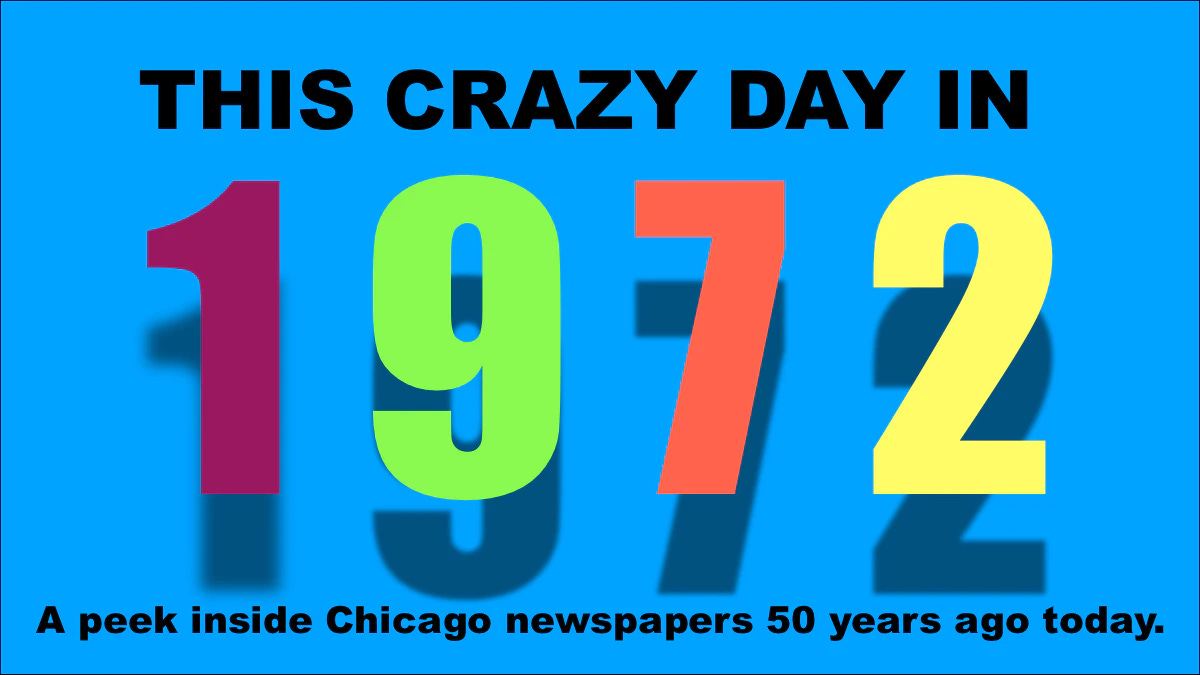



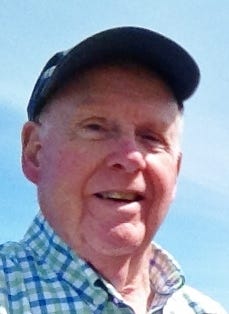
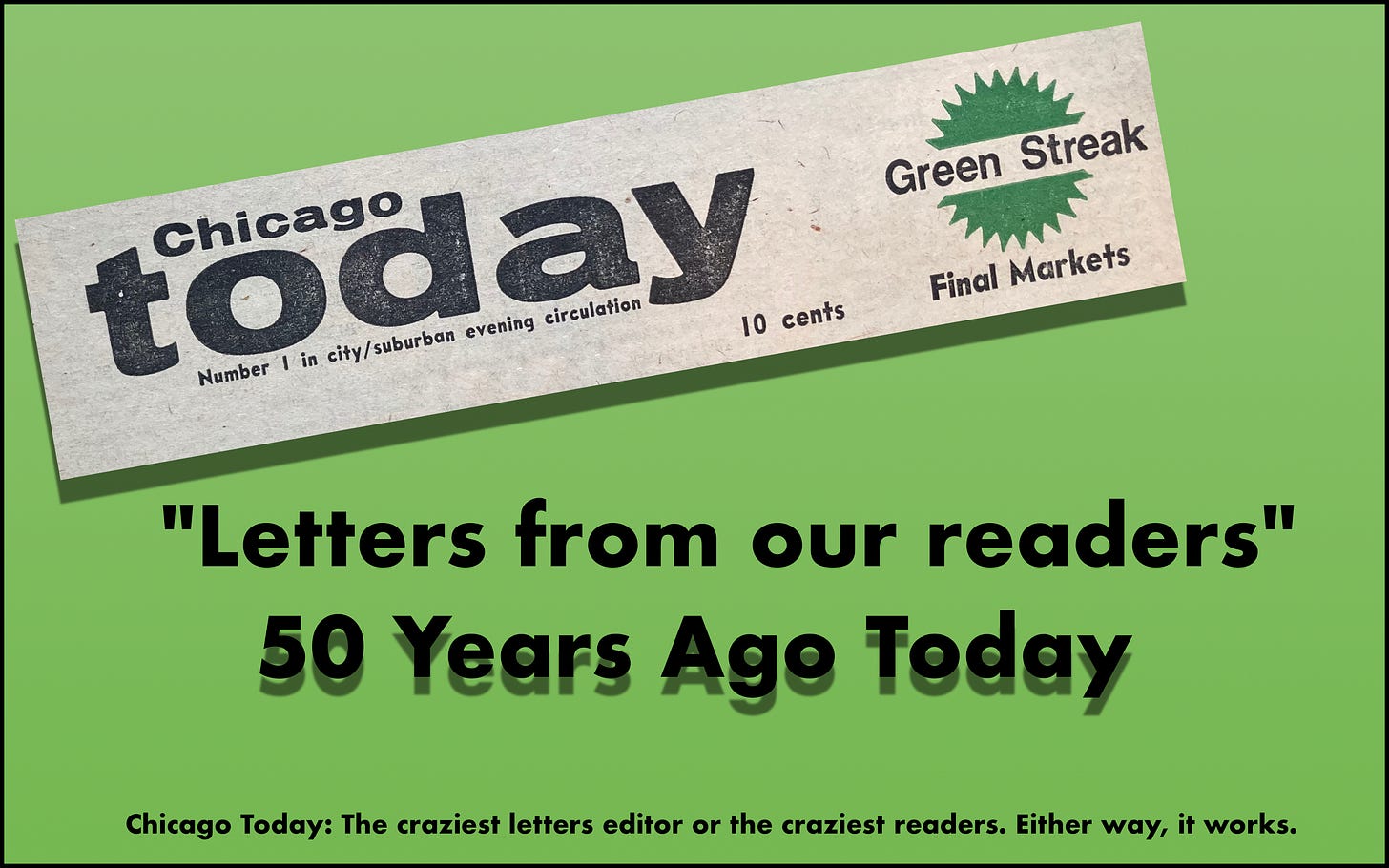





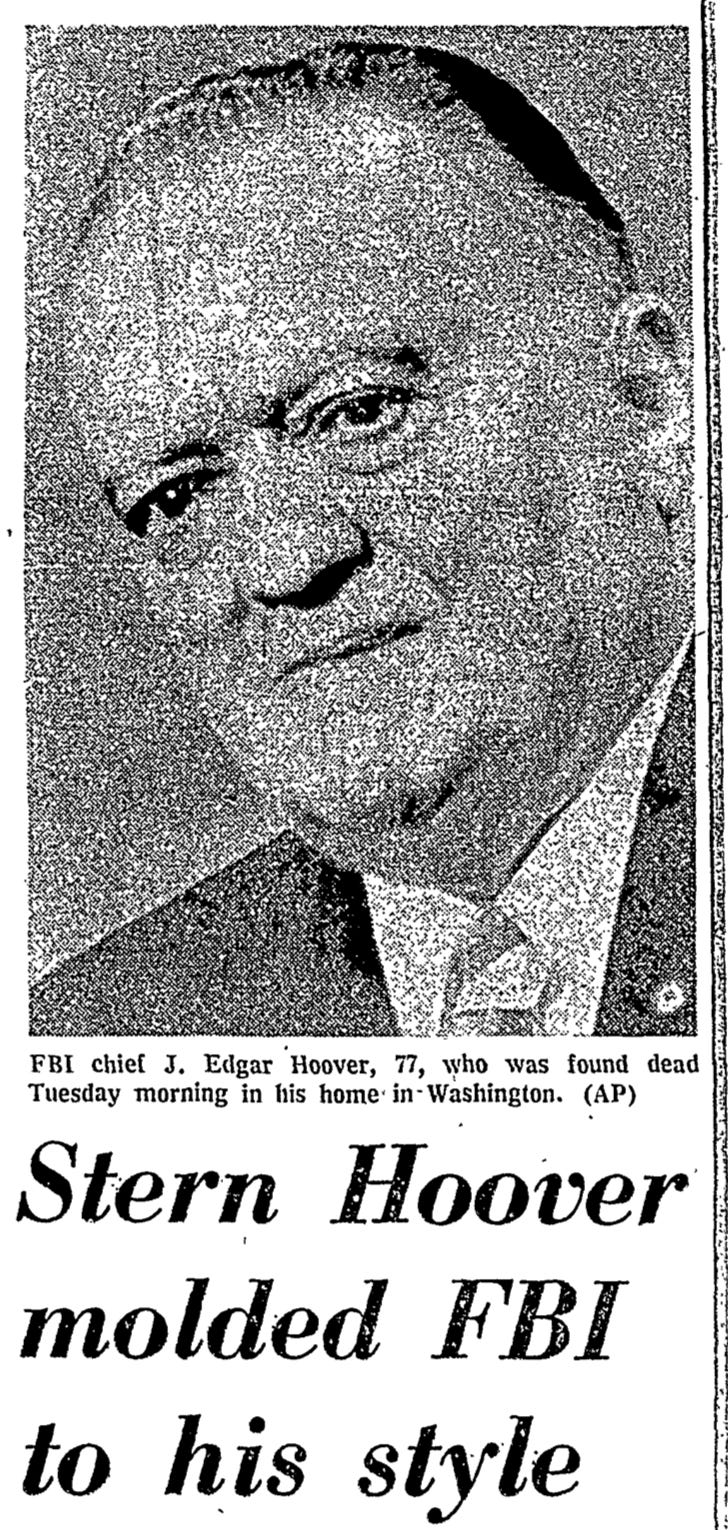

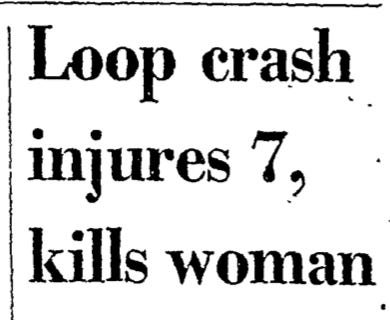
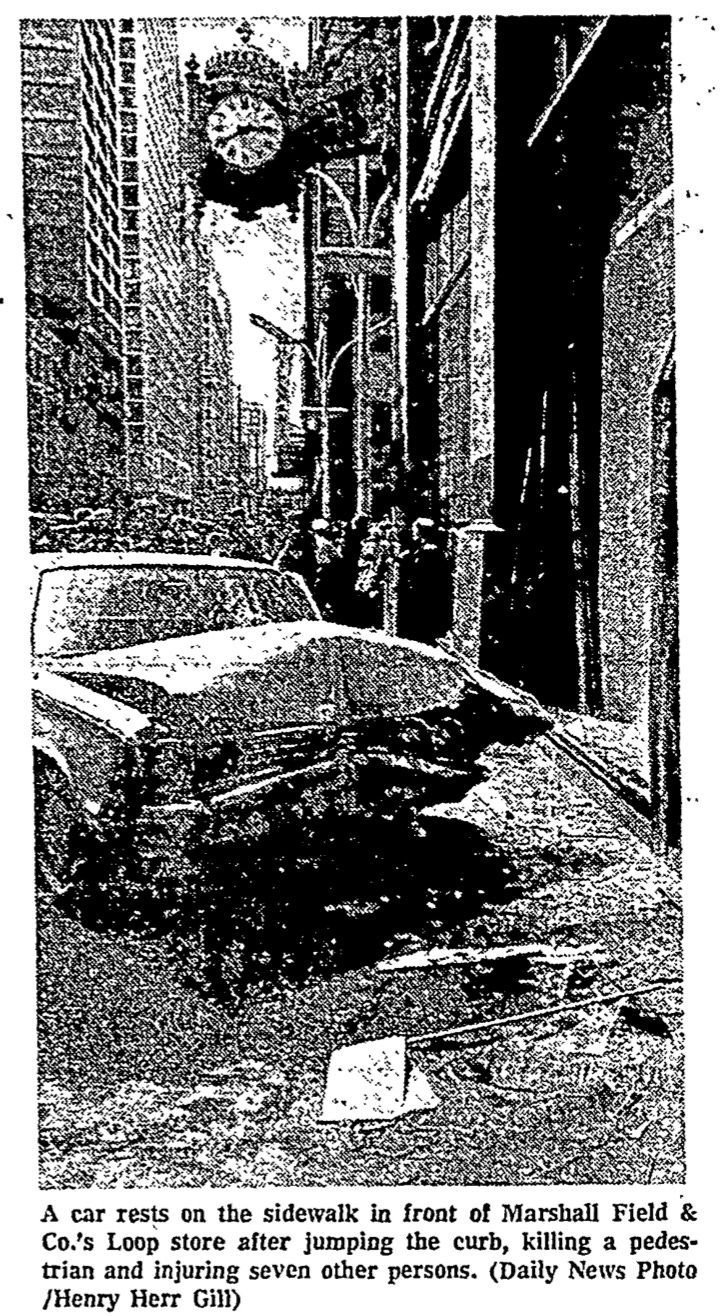




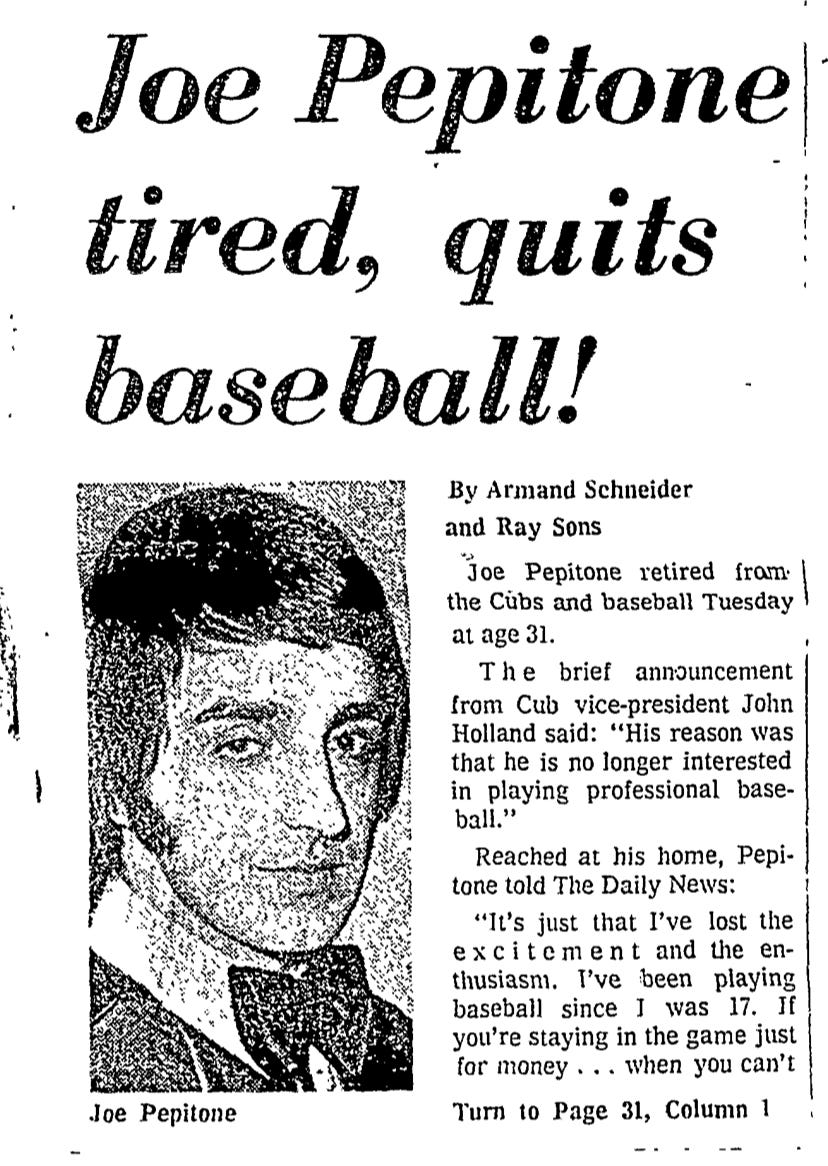






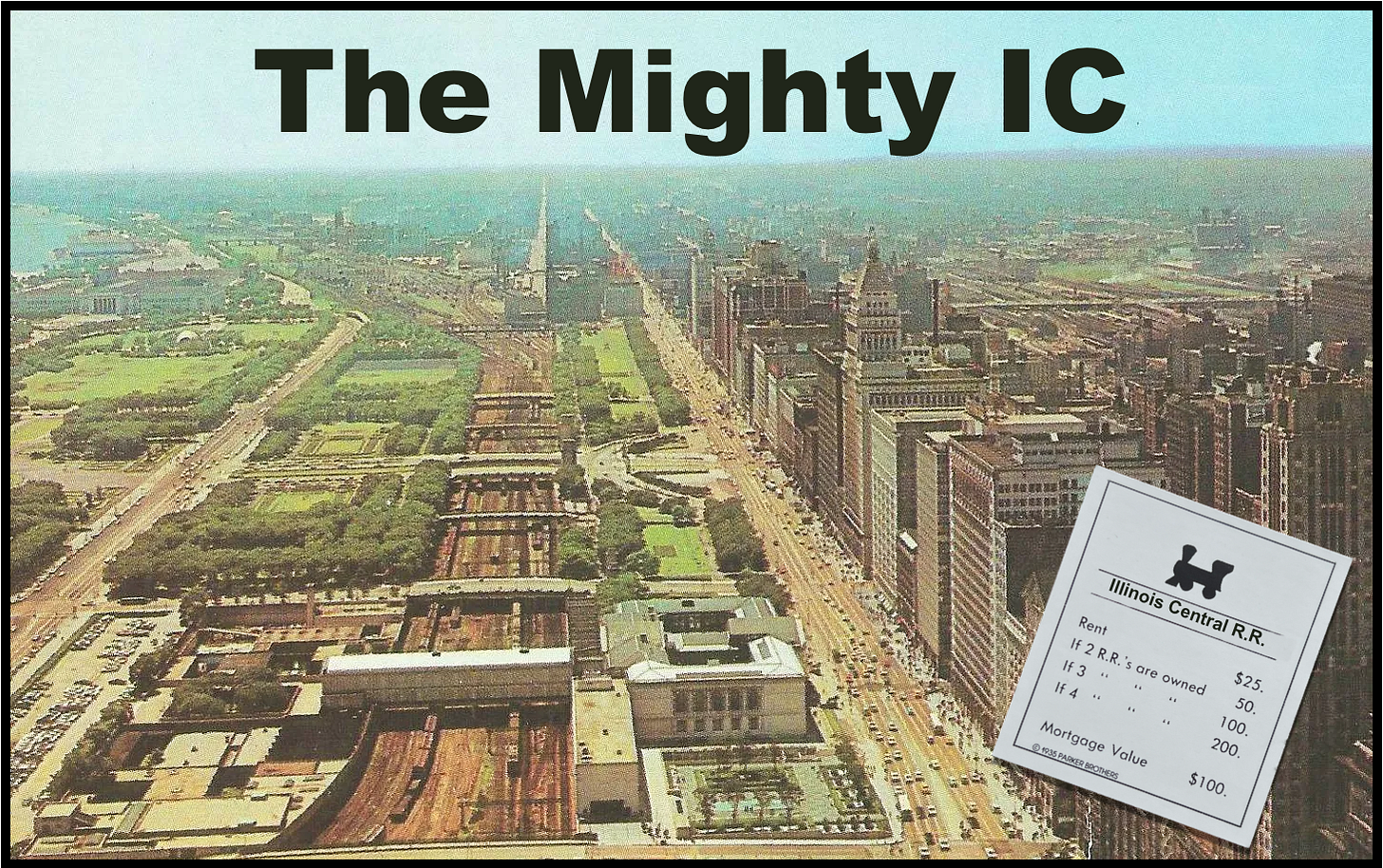

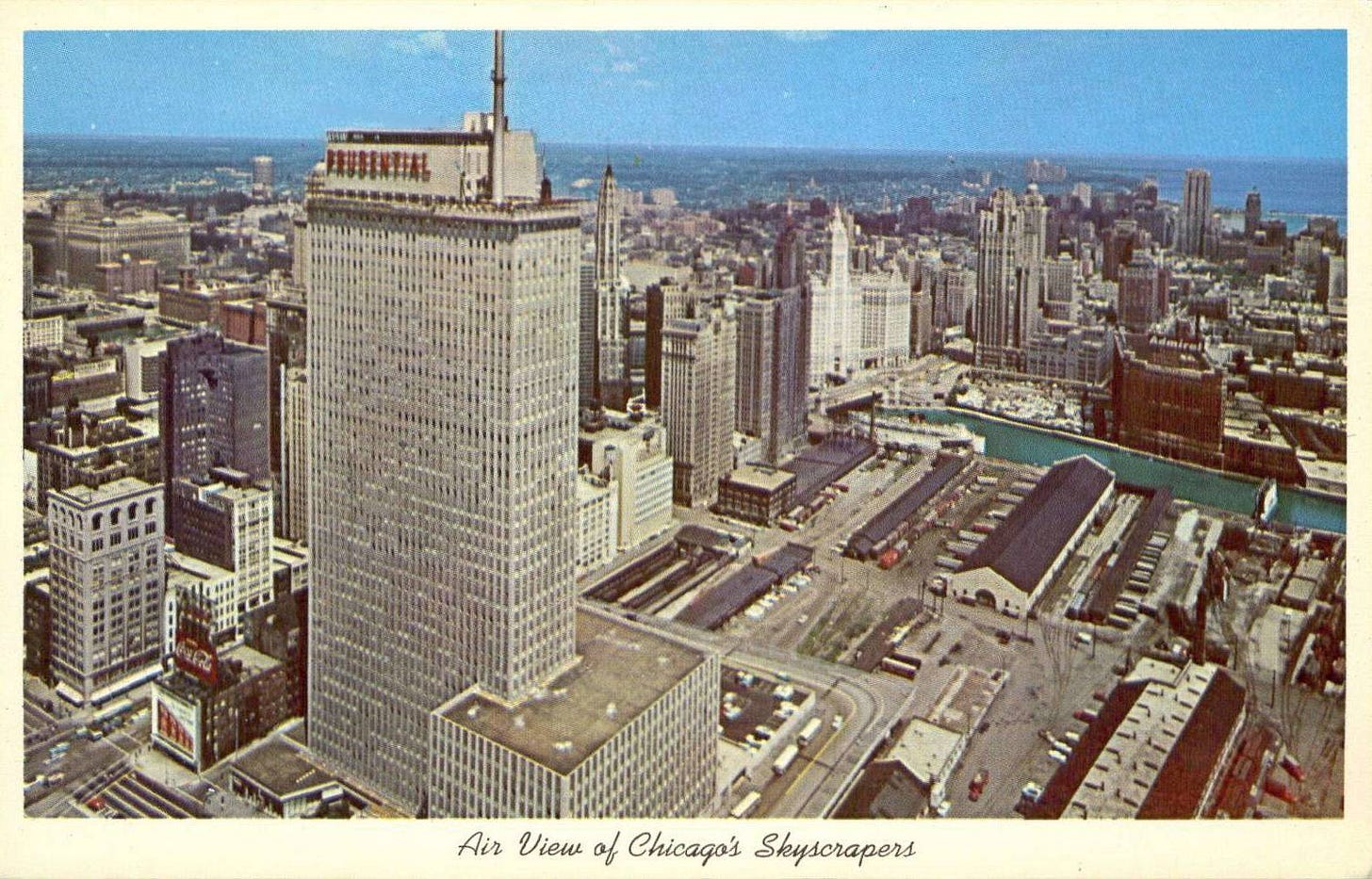
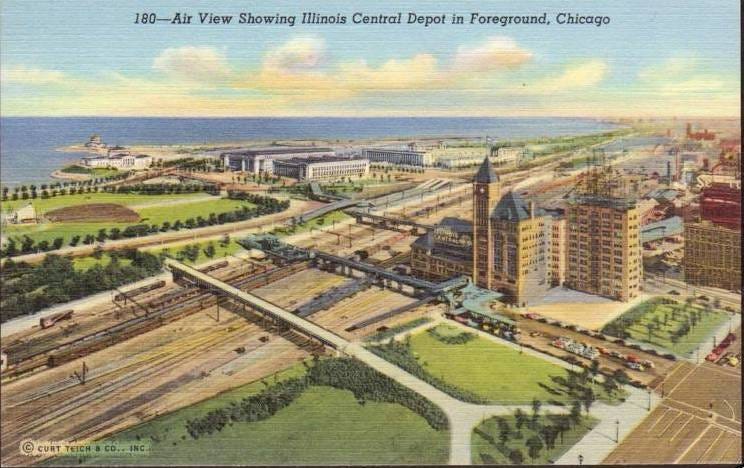





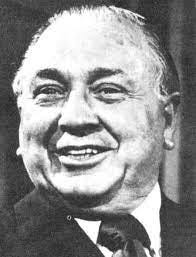
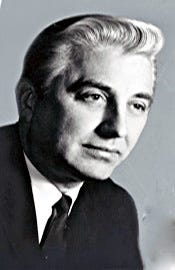

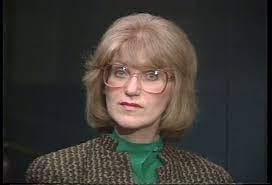









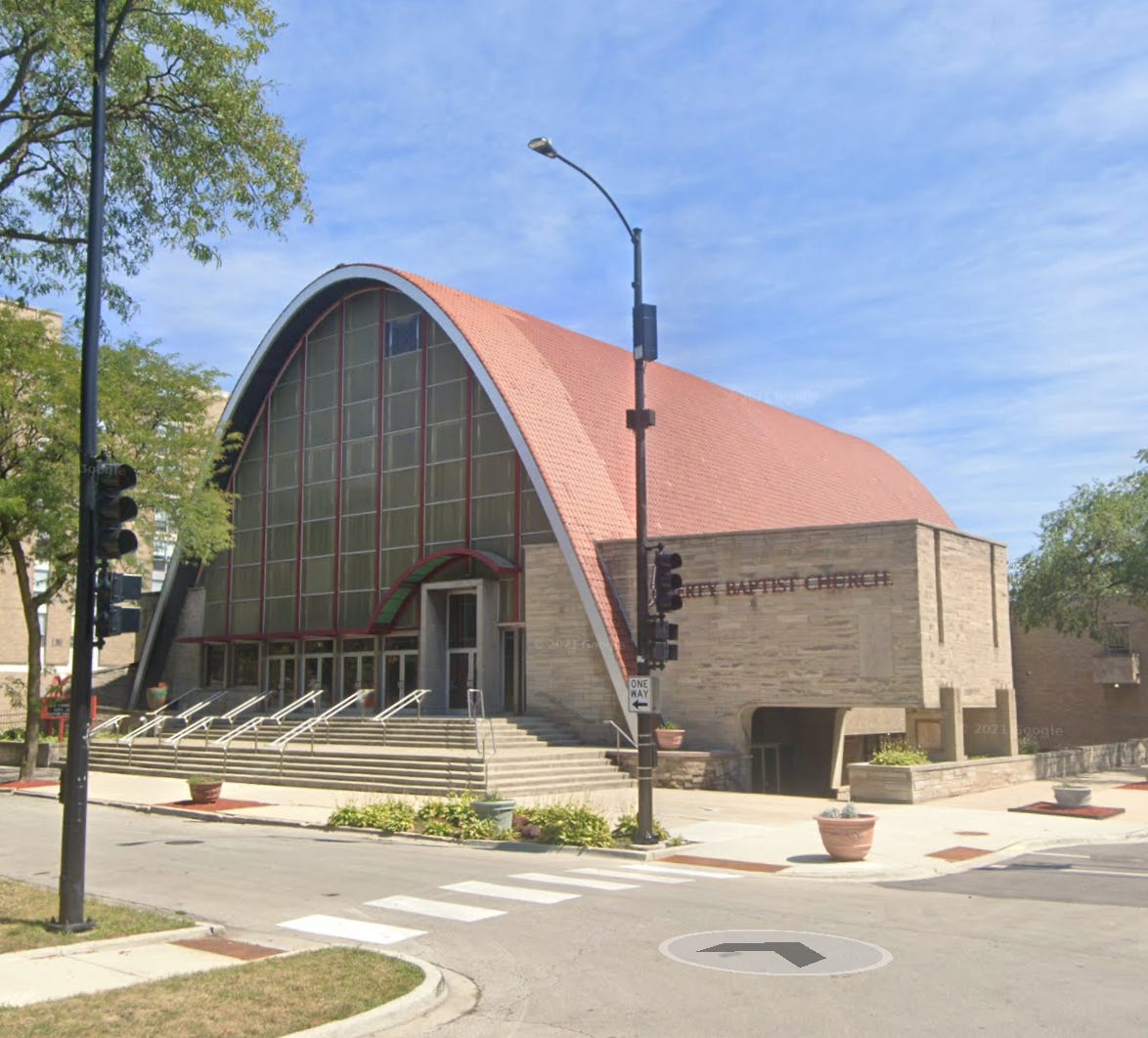

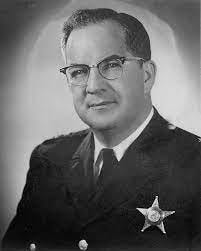



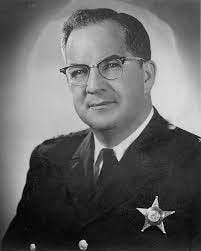
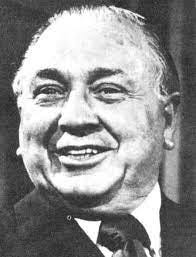




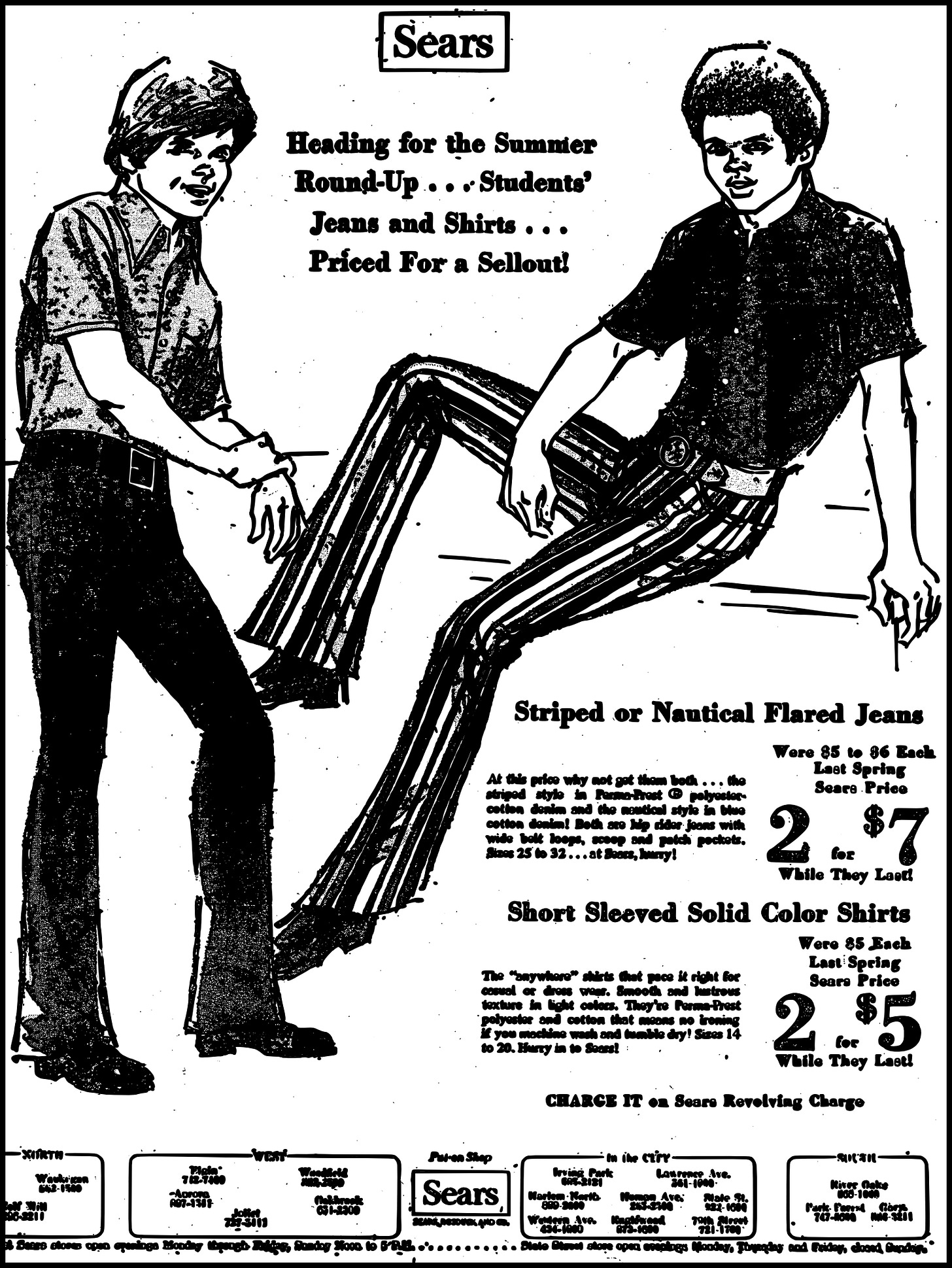


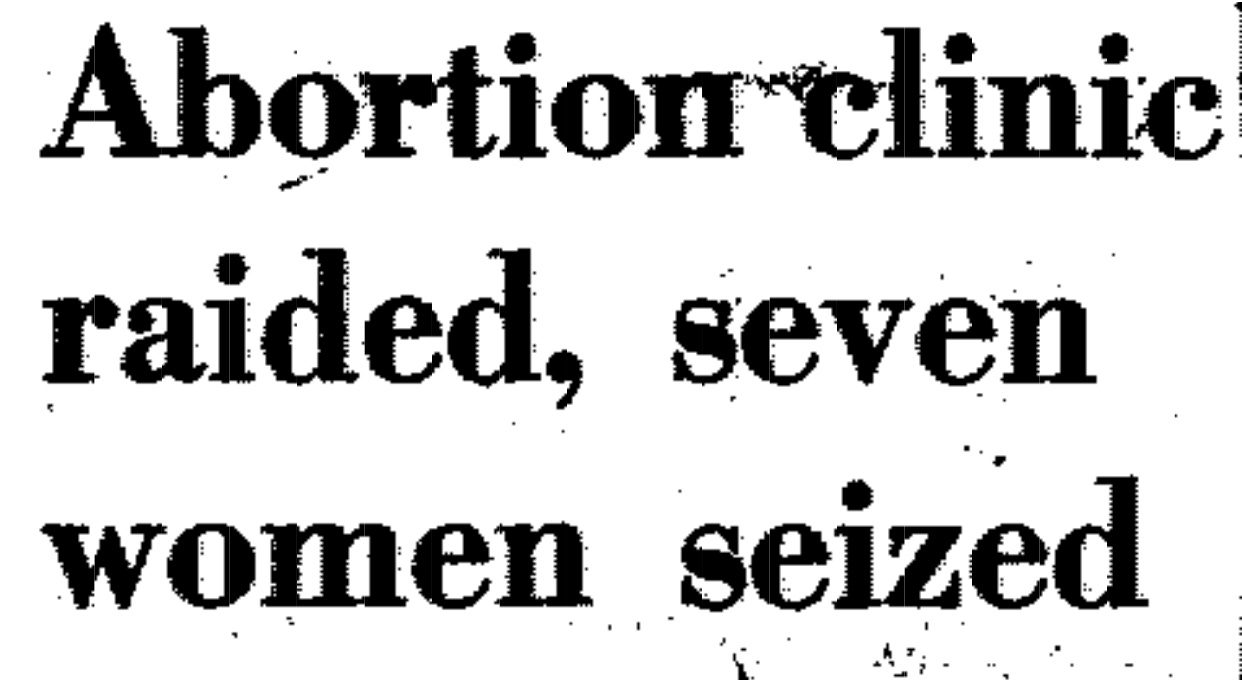







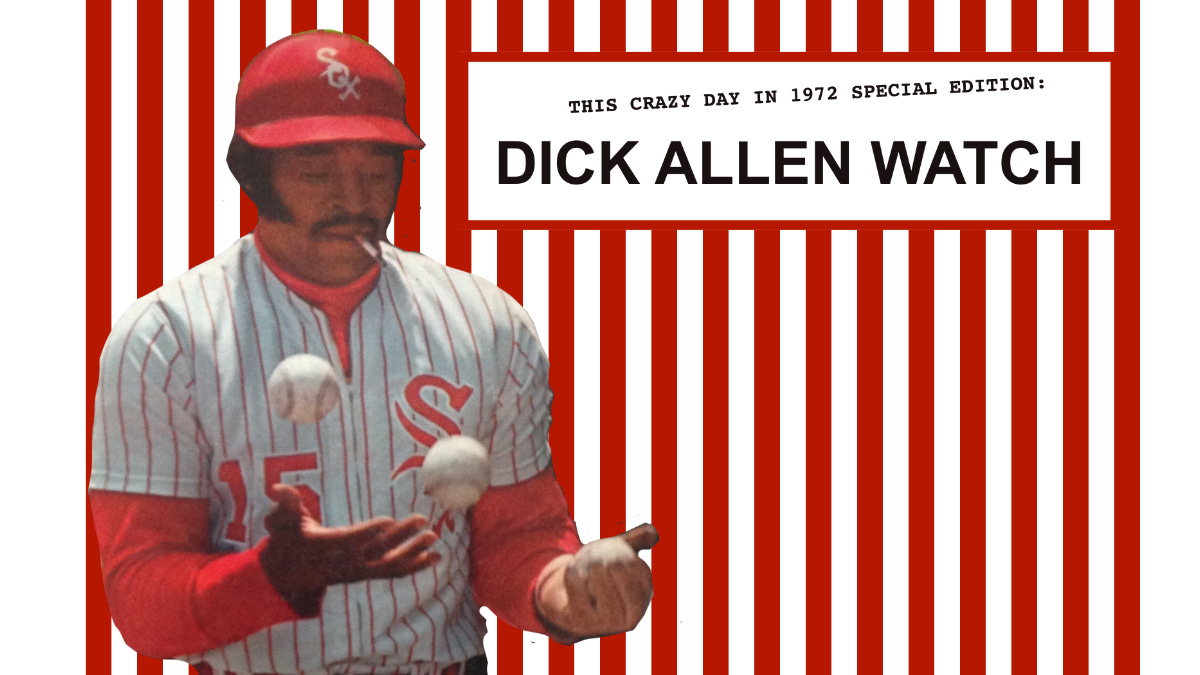









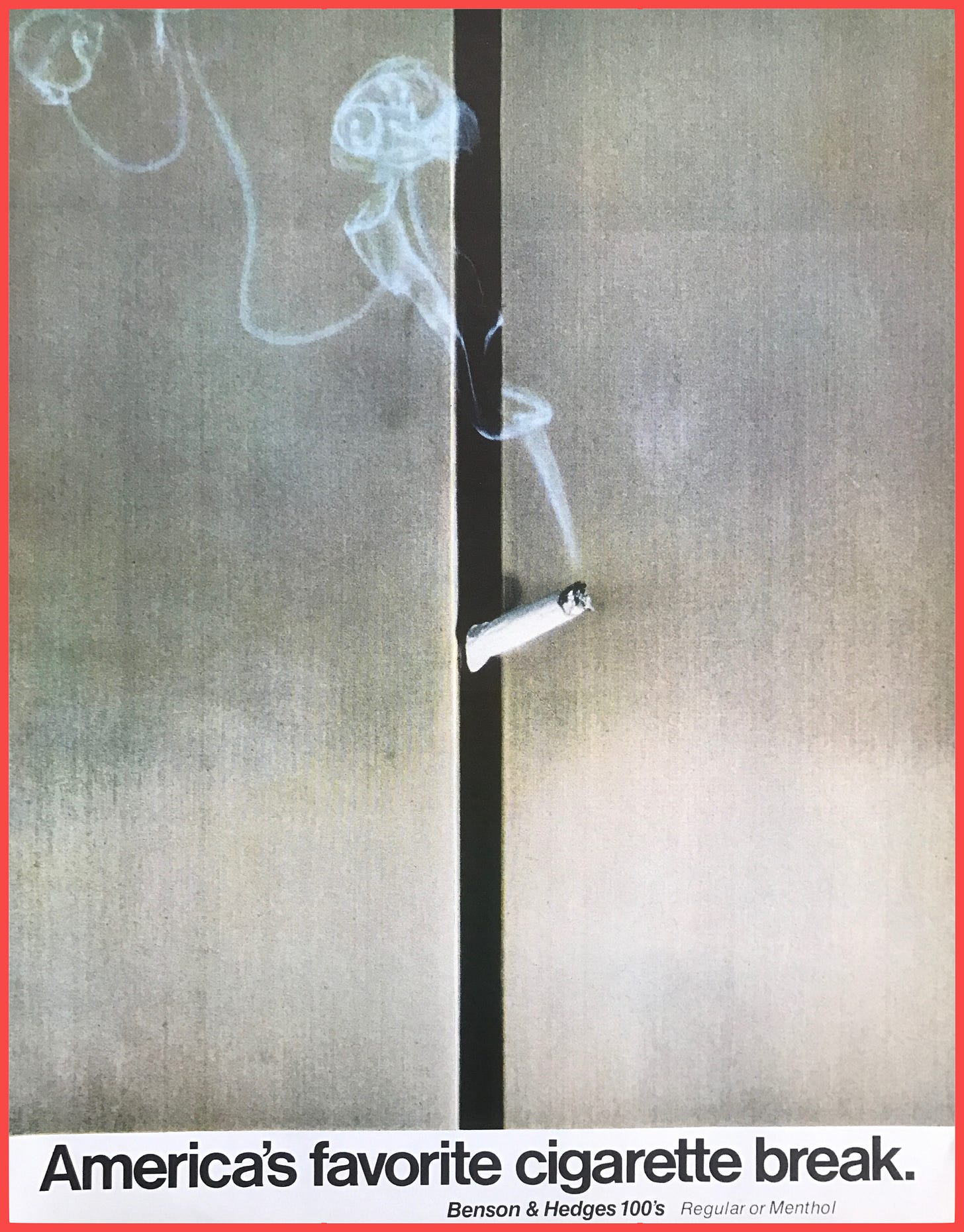


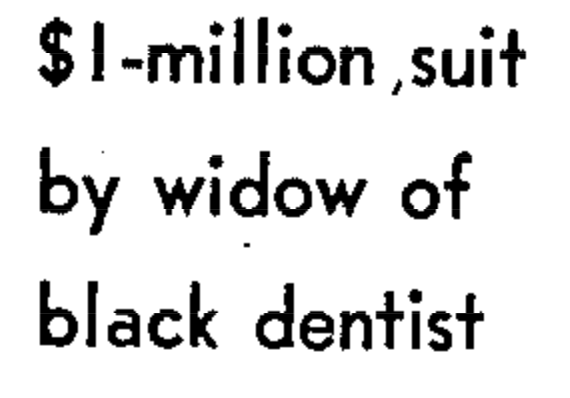














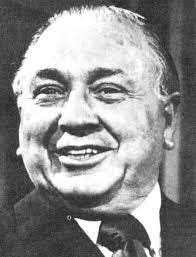







Enough with Richie or Dick Allen already!